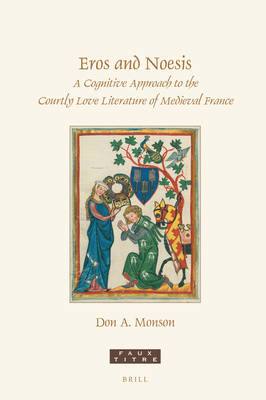
- Afhalen na 1 uur in een winkel met voorraad
- Gratis thuislevering in België vanaf € 30
- Ruim aanbod met 7 miljoen producten
- Afhalen na 1 uur in een winkel met voorraad
- Gratis thuislevering in België vanaf € 30
- Ruim aanbod met 7 miljoen producten
Zoeken
€ 248,95
+ 497 punten
Omschrijving
This is the first study to apply the results of modern cognitive science to medieval love literature. Covering the entire corpus of Occitan, French and Latin love literature of twelfth- and thirteenth-century France, it explores the universal and the culturally specific in medieval poetic attitudes towards love, the cognitive structure of the love themes, and the cognitive basis for the system of courtly genres. It proposes a cognitive taxonomy of courtly literature based on three "hyper-genres" the lyric as the basic mode for the expression of love, with courtly narrative and didactic literature arising through a process of amplification of the courtly themes. It also includes anti-courtly satire, which applies to courtly idealism an innate human propensity for detecting cheating.
Specificaties
Betrokkenen
- Auteur(s):
- Uitgeverij:
Inhoud
- Aantal bladzijden:
- 372
- Taal:
- Engels
- Reeks:
- Reeksnummer:
- nr. 455
Eigenschappen
- Productcode (EAN):
- 9789004504486
- Verschijningsdatum:
- 24/03/2022
- Uitvoering:
- Hardcover
- Formaat:
- Genaaid
- Afmetingen:
- 155 mm x 235 mm
- Gewicht:
- 741 g

Alleen bij Standaard Boekhandel
+ 497 punten op je klantenkaart van Standaard Boekhandel
Beoordelingen
We publiceren alleen reviews die voldoen aan de voorwaarden voor reviews. Bekijk onze voorwaarden voor reviews.











